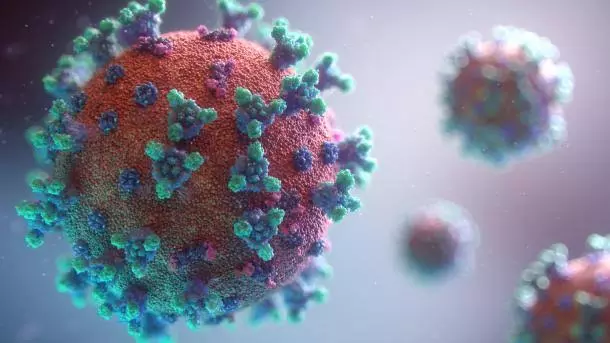
Omicron may have genetic material from common cold virus: Researchers
text_fieldsThe highly-mutated Omicron variant may have picked up some of its genetic material from the likes of the common cold, as parts of its structure showed differences from other variants of the coronavirus researchers posited in a new study published on Saturday.
Unusual genetic material could have been picked up from the.common cold virus in order to camouflage the virus and enhance its ability to enter human cells the researchers atCambridge, Massachusetts-based data analytics firm Nference said. The study, which is yet to be peer reviewed noted that the genetic markers detected in Omicron were not found in previous strains of SARS-Cov-2.
Researchers hypothesised that the new variant could have been born after 'viral co-infection', where a strain of Covid-19 in an infected person exchanged DNA with a common cold virus which may have been inhabiting the gastrointestinal tract or respiratory tissue of the patient. The process of 'recombination' of genetic material have been observed in viruses before.
The same genetic sequence appears many times in one of the coronaviruses that causes colds in people - known as HCoV-229E - and in the human immunodeficiency virus (HIV) that causes AIDS, said Venky Soundararajan, who headed the study.
Vaccine hesitancy and vaccine inequity were also speculated to be causes for accelerated mutations of the virus the study warned.
"Since achieving global vaccination could take years, it is important to vigilantly monitor the changing mutational landscape that could lead to the emergence of new SARS-CoV-2 variants. Indeed, even among the Omicron variants there are differences in the prevalence of the constituent mutations. Finally, there is a need to sequence SARS-CoV-2 genomes from individuals with viral co-infections and in general to develop a "variant warning system" for early detection of variants of concern based on their mutational profile," the study reads.
While the severity and lethality of Omicron remains relatively unknown, the virus is sending infections soaring in South Africa where it was first infected. Soundarajan told media that the high rates of HIV infections, which debilitate the immune system, were contributing both to the soaring infection rate and also may be a cause for further mutation of the virus as it could exchange genetic matieral with HIV too.























